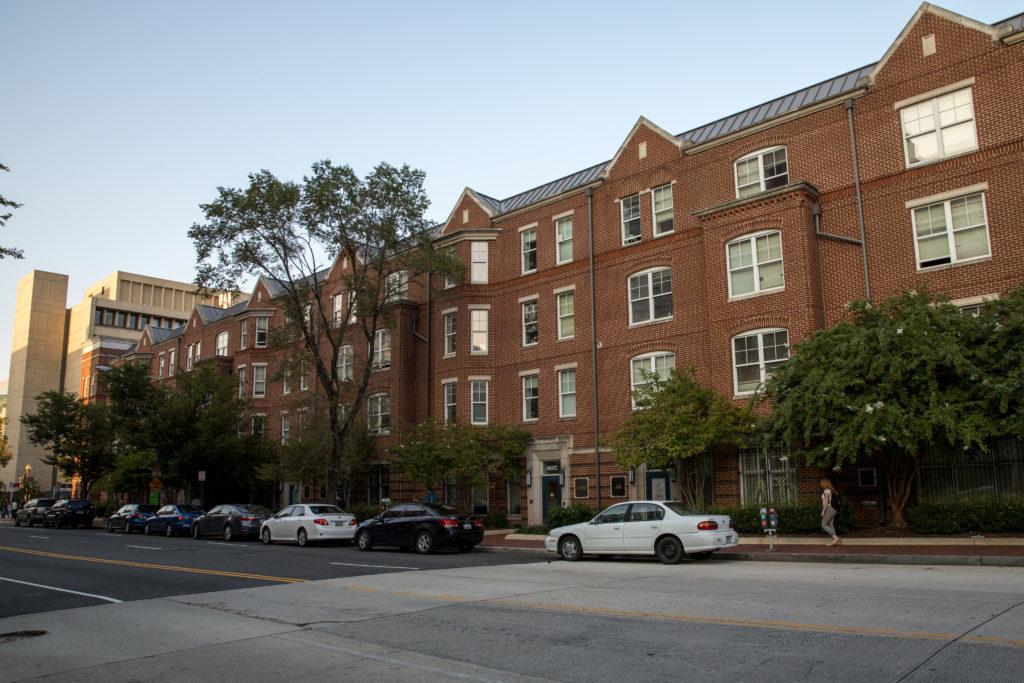This fall, for the first time, freshmen won’t be able to participate in a signature tradition for many new students: joining a Greek chapter.
As the deferred recruitment policy – mandating that freshmen complete a semester of on-campus credits before joining a fraternity or sorority – takes effect, Greek leaders said they would host events and activities for new students this fall to keep them interested and invested in Greek organizations before they can formally join in the spring.
Interfraternity Council and Panhellenic Association leaders said they weren’t concerned about a possible drop-off in membership as a result of the policy, but experts said recruitment numbers may initially fall as new freshmen join other student organizations during their first semester on campus.
Christina Witkowicki, the director of student involvement and Greek life, said the Center for Student Engagement will partner with fraternities and sororities to host a “Meet the Greeks” event Sept. 9 so students can learn about membership opportunities and get information they would have received at formal fall recruitment.
“The CSE and Greek Community are excited to kick this off with the Meet the Greeks event,” Witkowicki said in an email.
Witkowicki declined to comment on how deferred recruitment is expected to impact participation in Greek chapters on campus. She also declined to comment on how concerns from some Greek life leaders about the new policy were being addressed.
In April 2016, officials announced that deferred recruitment would be implemented across campus, drawing criticism from some student leaders who felt left out of the decision-making process.
“I think that whenever somebody rushes, there’s still the room or the space to have a meaningful brotherhood experience.”
Officials said new students needed time to acclimate to campus academically and socially before making what is often a long-term commitment to a fraternity or sorority. But others said the policy singled out Greek organizations after several chapters were sanctioned for behavioral violations in recent years.
Harley Pease, the president of the Interfraternity Council, said the IFC will focus on overall community engagement with Greek leaders this semester before formal rush next spring.
“The IFC is very excited and focused on community-building this semester as well as preparing for formal recruitment in the spring,” Pease said in an email.
He declined to elaborate further.
Dani Harton, the president of the Panhellenic Association, did not return multiple requests to comment.
Greek life leaders said that engaging freshmen during their first semester on campus with activities and events will make sure students consider joining Greek life even though they can’t yet officially commit to a chapter.
David Lange, the president of Delta Lambda Phi – a fraternity aimed at gay, bisexual, transgender and progressive men – said deferred recruitment likely won’t affect participation in Greek life next semester.
Still, he said the chapter is ramping up outreach to freshmen, hosting events in University Yard in the coming weeks and blasting out announcements in the LGBTQIA Resource Center’s newsletter.
“I don’t think it impacts your fraternity life or your experience in a negative way,” Lange said. “I think that whenever somebody rushes, there’s still the room or the space to have a meaningful brotherhood experience.”
Elmer Rajah, the vice president of the Multicultural Greek Council, said the new policy will improve the rush experience for incoming freshmen because students need time to adjust to campus and college life before committing to a Greek organization.
“Freshmen that rush their first semester, they experience a massive GPA drop, and I think that Greek life has a commitment to its members to make sure that they’re doing well academically and professionally.”
“I thought it would benefit the community,” Rajah said. “Freshmen that rush their first semester, they experience a massive GPA drop, and I think that Greek life has a commitment to its members to make sure that they’re doing well academically and professionally.”
Rajah said he is planning to help organize a block party-type event in September, giving interested students a chance to meet Greek life leaders and become familiar with the different fraternities and sororities on campus, he said.
Greek life experts said it may be difficult at first for chapters to sustain freshman interest and that membership may initially wane, but the arrangement will benefit students academically and socially in the long-run.
Arleny Alvarez-Pena, the assistant director for the Office of Student Involvement at University of Albany, said hosting events like meet-and-greets and organization fairs can promote Greek life and provide students with the opportunity to get to know Greek leaders ahead of formal recruitment in the spring.
She said it would be important for officials to ease Greek leaders into the transition with events throughout the fall and to be transparent about any new decisions.
“You don’t want to throw a fastball the first time around, you want to at least give a little bit of a softball first,” she said. “It’s one where there is a lot of communication with our population and we engaged them and included them in our decision process.”
Betsy Adams, the director of fraternity and sorority life at Wake Forest University, said deferred recruitment can be a difficult adjustment for current members, but it ultimately benefits students’ grades and helps them find like-minded people in their Greek community.
Adams said many universities with similar policies – including Wake Forest – focus on informing freshmen about the recruitment process – including university polices and council-specific rules – during the first semester so they are more prepared to join chapters in the spring.
“Most of our members agree that, in hindsight, they appreciate the semester to acclimate to Wake Forest before they add fraternity or sorority to their routine,” Adams said.





